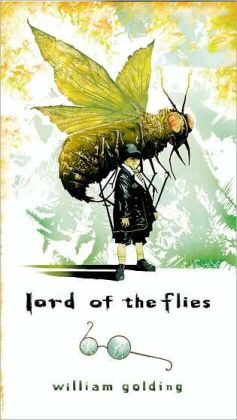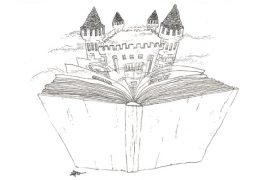Article in brief: A review about “Lord of the Flies” that was written by Sir William Golding.

“Kill the beast. Cut his throat. Spill his blood.” – Sir William Golding
In the absence of rules and culture, would you lose your humanity and allow yourself to be consumed by the law of the jungle? Would you allow violence to be your only chance of survival? Sir William Golding, author of the Lord of the Flies teases us with this possibility. The novel is probably one of the most underrated literary pieces in the modern literature. A book that had not done well in the first decade after its publication, but became so well acclaimed later on that it became a text book in the 60’s, a mythology of survival.
This book is a perfect recipe for adventure; a parody of children adventures’ stories. The book explores the savagery that underlies the most civilized human beings and explores the dark side of humanity. The book’s storyline takes place in the middle of an unknown nuclear war with a predictable storyline where schoolboys are shipwrecked and stranded on a deserted island without the supervision of adults.
In order to set the rules and boundaries of what is fun, the boys elect a leader. Golding had not sugarcoated his novel and instead turned it into a horrifying saga of survival and loss of innocence. The two faces of humanity (savage and civilized) are represented by Jack and Ralph who both fought for the leadership position. The voice of reason was represented by Piggy who was bullied and tormented by everyone.
Piggy and Ralph find a conch on the beach and as the leader, Ralph decides to call for a meeting through blowing the conch that resonates across the island. The conch is a representation of power and leadership. The conch is not meaningful on its own, but it is a tool of power nonetheless, not because of what it is, but because of what they made it to be.
Though the writing style is poetic and beautiful, the goriness below the surface is ominous. If we look closely at the title itself, “Lord” is a synonym of power. The “flies” are a manifestation of death and decay, an obvious representation of the innocence the boys lose throughout the novel. However, put the two words together and the thirst for power and corruption walk hand in hand.
“Ralph wept for the end of innocence, the darkness of man’s heart, and the fall through the air of a true, wise friend called Piggy.” -Sir William Golding
The novel is gory, dark and depressing, but is it worth reading? I say yes! The book is rich with symbolism about leadership, corruption and how savagery is somehow a part of our humanity. It’s gripping, brutal and pessimistic. Rainbows and butterflies may not be our daily cup of tea. Sometimes we understand when society is lost; we all show our fangs and fight for our survival. Personally, I give this book 4 out of 5 stars.




1 Comment